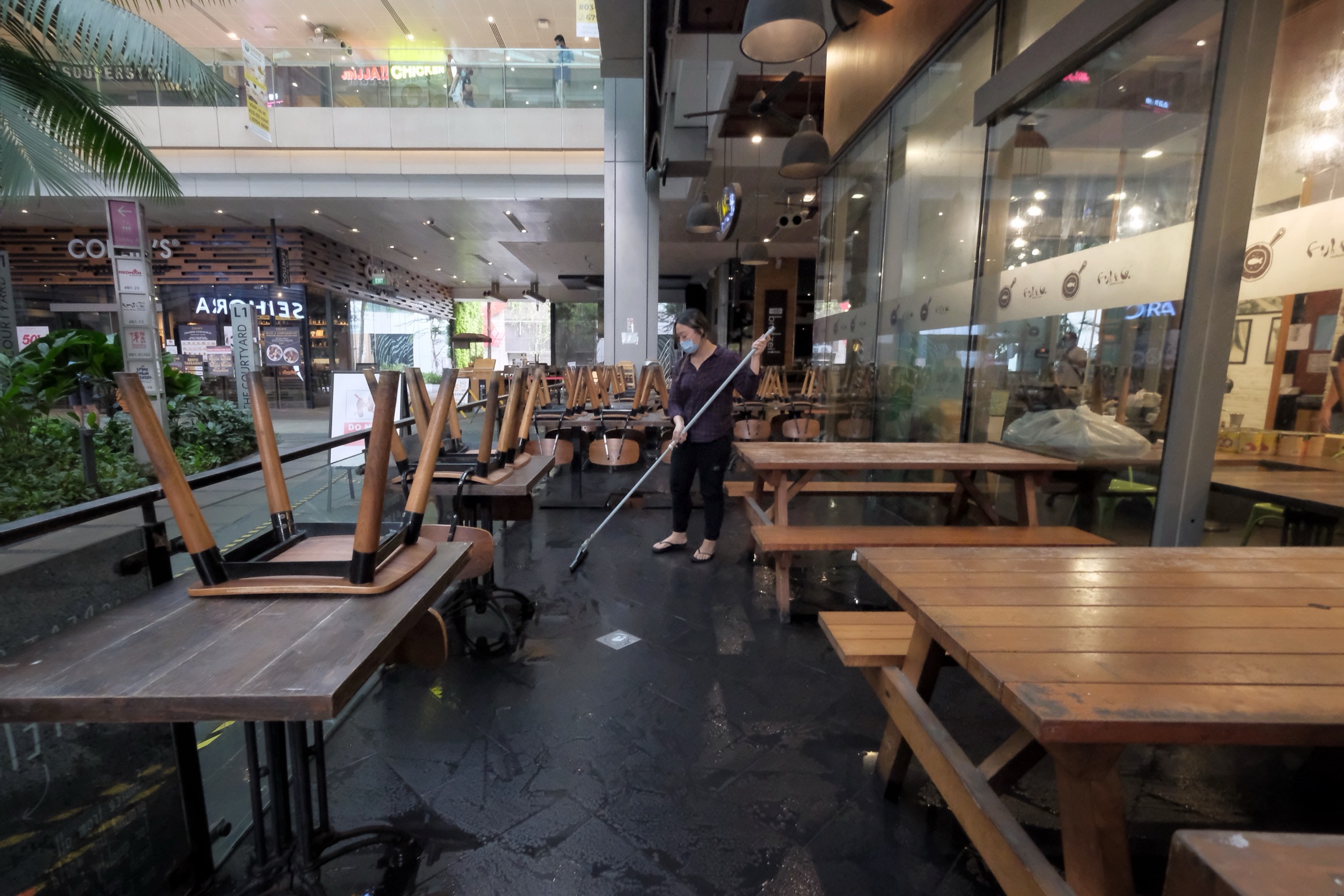Rise in workplace injuries from slips, trips and falls a concern and needs to be addressed: Zaqy Mohamad
Sign up now: Get ST's newsletters delivered to your inbox

Last year, there were 985 work injuries in the F&B sector. In 2019, there were 1,167 injuries in the sector, and 932 in 2018.
ST PHOTO: GAVIN FOO
Follow topic:
SINGAPORE - Workplace injuries caused by slips, trips and falls in the food and beverage (F&B) industry have risen by an average of 12 per cent a year in the four years before the pandemic, and have been the main driver of injuries in the sector, said Senior Minister of State for Manpower Zaqy Mohamad on Thursday (June 17).
Overall, work injuries in the sector have also been rising at an average rate of 9 per cent a year from 2016 to 2019, tapering down slightly last year, as many workplaces were forced to shut due to Covid-19.
Last year, there were 985 work injuries in the F&B sector. In 2019, there were 1,167 injuries in the sector, and 932 in 2018.
These trends are becoming a concern and need to be addressed, Mr Zaqy said at a virtual forum for the F&B sector organised by the Workplace Safety and Health (WSH) Council.
He said: "Good workplace safety and health makes good business sense... No one wants to work in an accident-prone industry...
"For owners, a safe workplace and a healthy workforce means higher productivity, less time lost due to sick leave, better staff retention, and even lower costs from avoiding work injury insurance premium hikes due to injury claims.
"For employees, good workplace safety and health sense means protecting their lives and livelihoods."
Across all sectors, major injuries caused by slips, trips and falls are on the rise.
In the first three months of this year, there were 61 major injuries caused by slips, trips and falls across all industries, up from 37 during the same period last year.
Slips, trips and falls are also the top cause of non-fatal work injuries, said Mr Zaqy.
Hence, in conjunction with Thursday's virtual forum, a new year-long Slips, Trips and Falls (STF) campaign has been launched to raise awareness of such injuries.
This year's campaign is the third such campaign in as many years, and is the second one being led by the food service sector.
The WSH Council told The Straits Times that this year's campaign will target employers and workers from the F&B, logistics and transport, and facilities management sectors. It identifies four common hazardous areas in workplaces - slippery areas, slopes, uneven areas and cluttered areas.
The campaign will call on companies to establish a year-long STF commitment, and implement five key actions that require them to set aside time to check for hazards, clean up work areas, and share safety messages with their workers on a regular basis.
The five actions are:
- Displaying warning signs in areas with STF risks;
- Wearing of non-slip footwear when there is wet or oily flooring;
- Holding on to railings at non-level ground;
- Removing clutter; and
- Cleaning spills promptly
The WSH Council said it aims to reach out to 14 associations across the three sectors, whose members comprise more than 6,000 companies.
Said Mr Zaqy: "The intent here is to commit to do specific actions to address and tackle STFs, and prevent future injuries from occurring."
As part of the campaign, the authorities will also be organising "learning journeys" for companies in high-risk sectors, with the first such journey to start in August. These learning journeys encourage the sharing and learning of best practices across various industries.
Mr Zaqy said workers also need to be trained to be safe and this has to be done systematically. For example, segments on preventing slips, trips and falls are now included in the basic mandatory training course for all food handlers.
Singapore Hotel Association president Kwee Weilin, who chairs the WSH Council's hospitality and entertainment industries committee, said the F&B industry has been grappling with acute manpower constraints amid the pandemic and workers in the sector have had to bear the brunt of this shortage.
One way to work around manpower constraints is to adopt technology to maintain productivity and workplace safety standards, Ms Kwee said.
"When made to work longer hours and complete more tasks, our F&B workers are more likely to experience fatigue. Their day-to-day struggle at work may take a toll on their health and increase the likelihood of injuries," she added.

